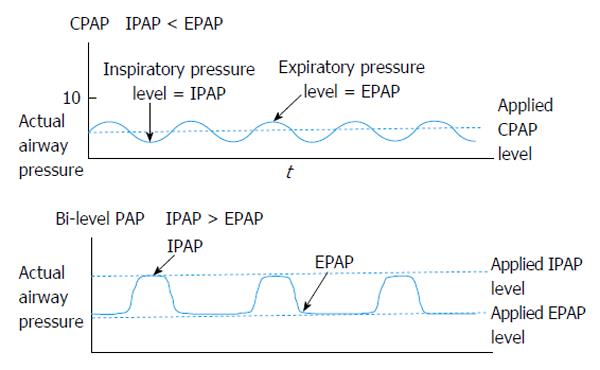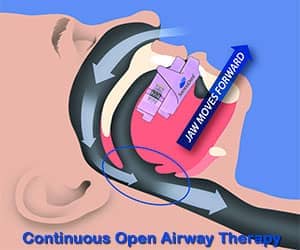Continuous positive airway pressure 37 internet google images
Table of Contents
Table of Contents
Have you been suffering from sleep apnea and wondering which treatment option is best for you? Look no further than Continuous positive airway pressure therapy (CPAP) vs other treatments! While there are various options available for sleep apnea treatment, CPAP has become the gold standard for managing the condition.
The Pain Points of Sleep Apnea Treatment
Sleep apnea is a common sleep disorder that can lead to restless nights, exhaustion, and even severe health issues such as heart disease, stroke, and diabetes. There are many treatment options available, including surgery, dental devices, and lifestyle changes. However, each treatment has its drawbacks, leaving many patients searching for a more effective solution.
The Target of CPAP vs Other Treatments
Continuous positive airway pressure therapy, or CPAP, is a non-invasive treatment for sleep apnea and involves wearing a mask over the nose or mouth while sleeping. This treatment uses air pressure to keep the airways open, preventing interruptions in breathing. CPAP has been proven to be highly effective in managing sleep apnea, leading to improved rest and a reduction in health risks associated with the condition.
Summary of CPAP vs Other Treatments
When it comes to treating sleep apnea, CPAP has become the go-to option for doctors and patients alike. Its effectiveness in keeping the airways open and preventing breathing interruptions has made it the gold standard for treating the condition. While there are other treatment options available, including surgery and dental devices, CPAP has proven to be more effective for the majority of patients.
Personal Experience with CPAP Therapy
As someone who has struggled with sleep apnea, I can attest to the effectiveness of CPAP therapy. While the thought of wearing a mask while sleeping can be daunting at first, the results are undeniable. I wake up feeling more rested and energized, and the long-term health benefits are an added bonus.
CPAP vs other treatments: Pros and Cons
While CPAP therapy is highly effective in treating sleep apnea, it’s important to weigh the pros and cons of each treatment option before making a decision. Surgery can be expensive and may come with prolonged recovery times, while dental devices can be uncomfortable and unreliable. Lifestyle changes, such as losing weight and avoiding alcohol, may help, but the results can be unpredictable.
Is CPAP Therapy Right for You?
When deciding whether CPAP therapy is right for you, it’s important to discuss your options with a doctor. They can help you weigh the pros and cons of each treatment option and determine which one is best suited for your unique needs.
Understanding the Risks Associated with Sleep Apnea
Sleep apnea can lead to serious health complications if left untreated. These include heart disease, stroke, high blood pressure, and diabetes. It’s important to seek treatment as soon as possible to mitigate any risks associated with the condition.
Personal Experience with CPAP vs Other Treatments
As someone who has tried various sleep apnea treatments, including surgery and dental devices, CPAP therapy has been the most effective solution for my needs. Its non-invasive nature and relatively low maintenance make it a great option for those looking for an easy-to-use and effective solution to sleep apnea.
Question and Answer for CPAP vs Other Treatments
Q: How long does it take to see results with CPAP therapy?
A: Many patients report feeling more rested and energized after just one night of CPAP therapy. However, it may take up to several weeks to see significant improvements in sleep quality and overall health.
Q: Can CPAP therapy be uncomfortable to wear?
A: While wearing a CPAP mask may take some getting used to, most patients find it to be comfortable and easy to use with regular adjustments. If you experience any discomfort while wearing the mask, consult with your doctor to adjust the fit or try a different mask type.
Q: Can CPAP therapy be used in conjunction with other treatments?
A: Yes, CPAP therapy can be used in conjunction with other sleep apnea treatments, such as lifestyle changes or dental devices. Your doctor can help you determine which treatments may be best for your unique needs.
Q: Is CPAP therapy covered by insurance?
A: Yes, most insurance plans cover the cost of CPAP therapy. Contact your provider for more information about coverage and specific treatment options.
Conclusion of CPAP vs Other Treatments
When it comes to managing sleep apnea, CPAP therapy has proven to be the most effective solution for a large majority of patients. While other treatment options are available, they typically come with more drawbacks and risks than CPAP. If you or a loved one is struggling with sleep apnea, consider discussing CPAP therapy with a doctor to find the best treatment solution for your unique needs.
Gallery
Continuous Positive Airway Pressure Therapy | Nursing Information

Photo Credit by: bing.com / pressure continuous positive airway therapy
Positive Airway Pressure Therapy For Heart Failure

Photo Credit by: bing.com / pressure airway positive continuous bi level therapy 1175 wjc heart failure v6 i11
Continuous Positive Airway Pressure [37]. (Internet, Google Images
![Continuous positive airway pressure [37]. (Internet, Google images Continuous positive airway pressure [37]. (Internet, Google images](https://www.researchgate.net/profile/Mohammed_Jaradat4/publication/281926605/figure/fig2/AS:668370873643016@1536363442451/Continuous-positive-airway-pressure-37-Internet-Google-images-CPAP-first-page-PAP.png)
Photo Credit by: bing.com / airway continuous cpap pap
Continuous Positive Airway Pressure (CPAP) Devices Market

Photo Credit by: bing.com / pressure positive airway continuous cpap devices types market machine breathing bipap different insights premium press release
Mechanism Of Action Of Continuous Positive Airway Pressure Therapy IV

Photo Credit by: bing.com / airway pressure positive continuous therapy iv




